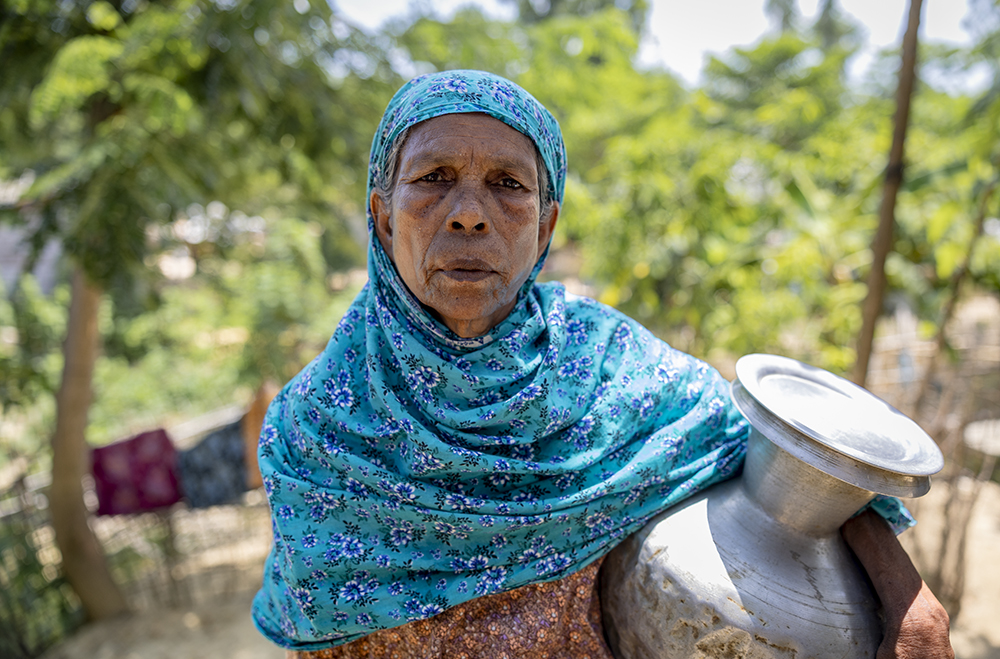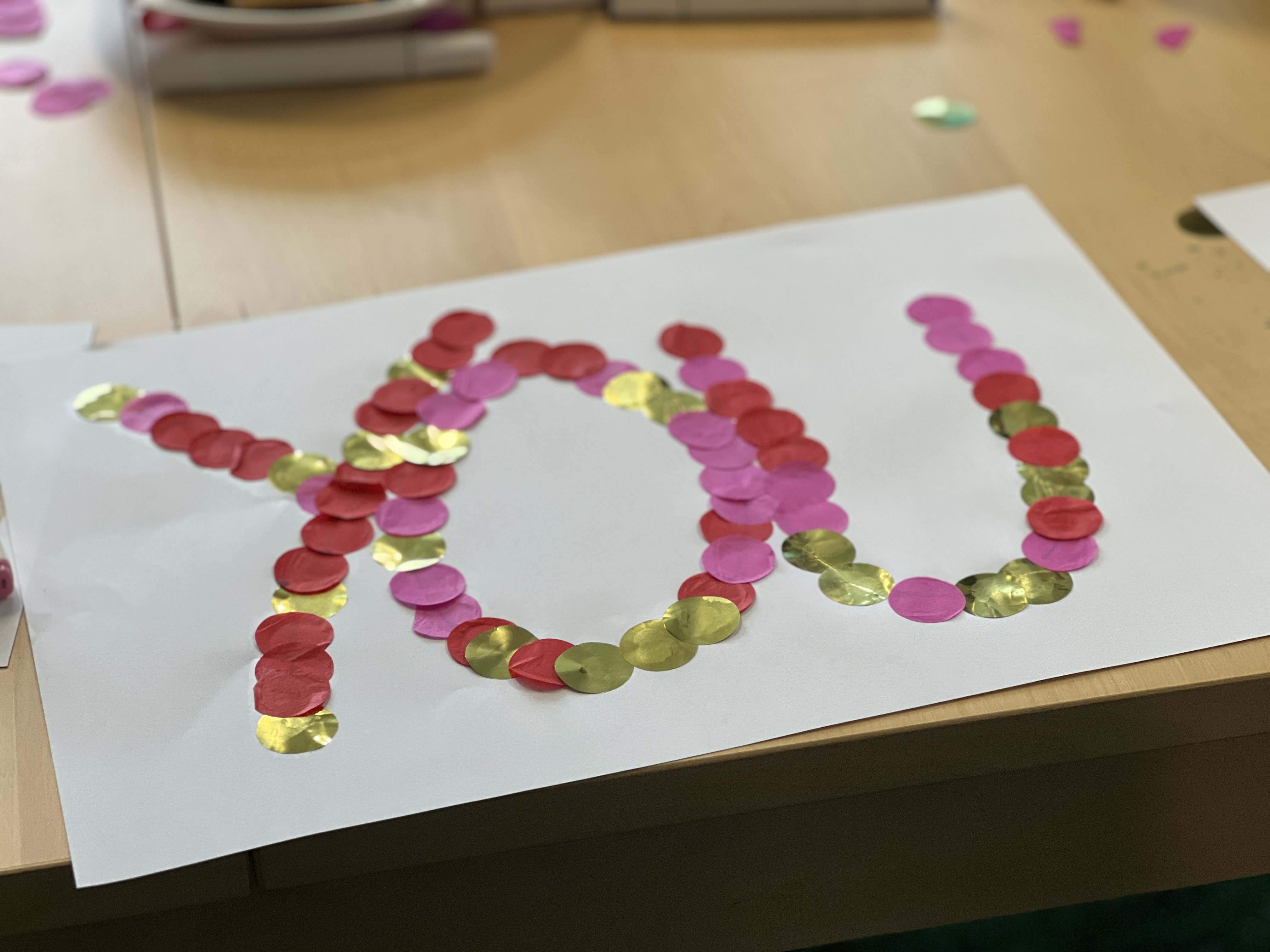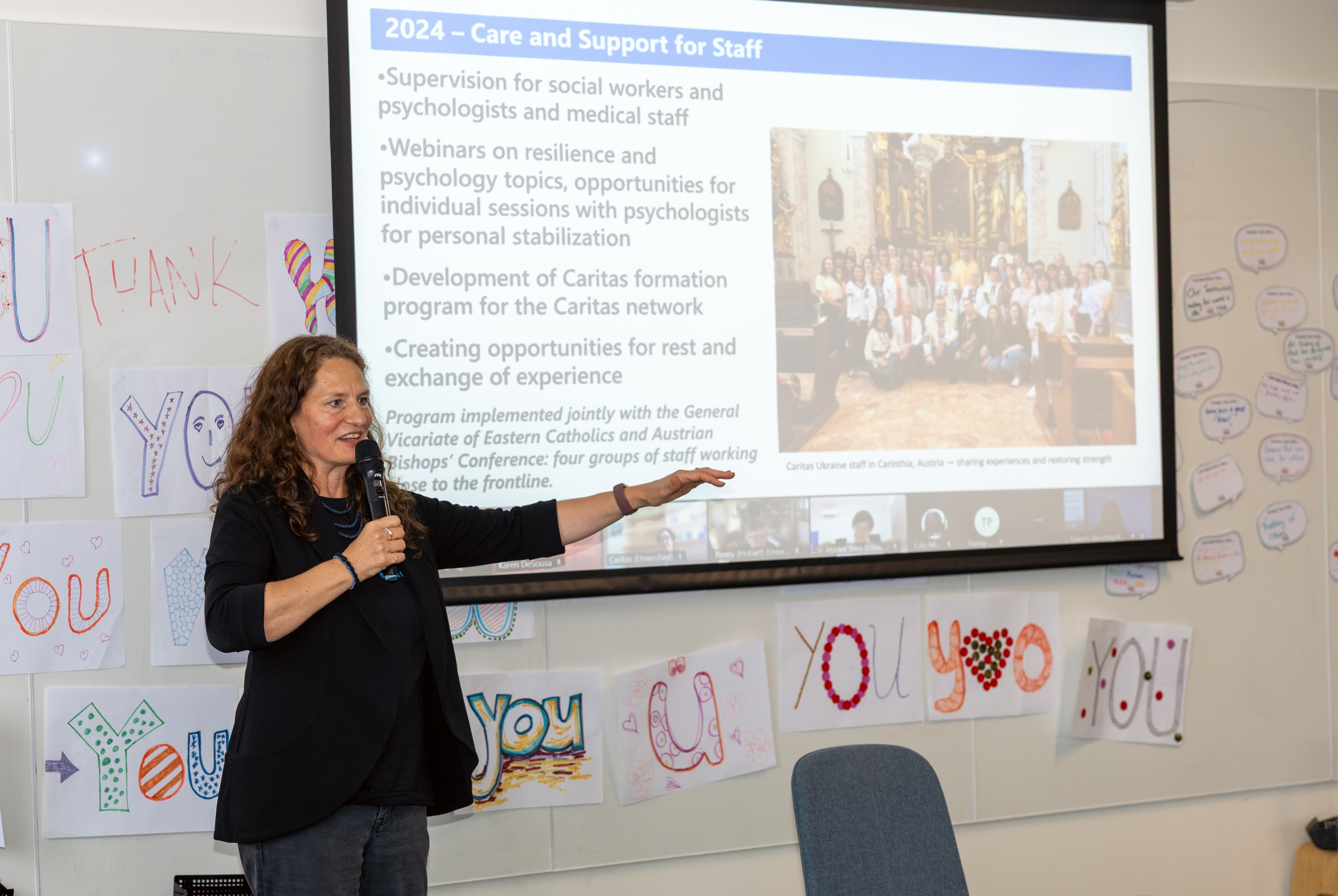A world in crisis
It’s hard to know where to start when writing a post about emergencies around the world. It can feel overwhelming to look at places like Gaza, Ukraine, Sudan, Myanmar, DRC and the Horn of Africa. There aren’t adequate words to describe the depth of despair and suffering in these, and so many other places around the world.
Crises are occurring with more frequency and intensity, driven by global political instability, conflict, and the impacts of extreme weather events driven by climate change. A record number of people – over 120 million worldwide – have been forced to flee from their homes due to emergencies and crises.
Last year, we had the opportunity to visit the frontlines of a forgotten crisis and meet some of the people who had been impacted. Not only did we see firsthand the suffering, but we saw the difference that even the smallest help can bring.
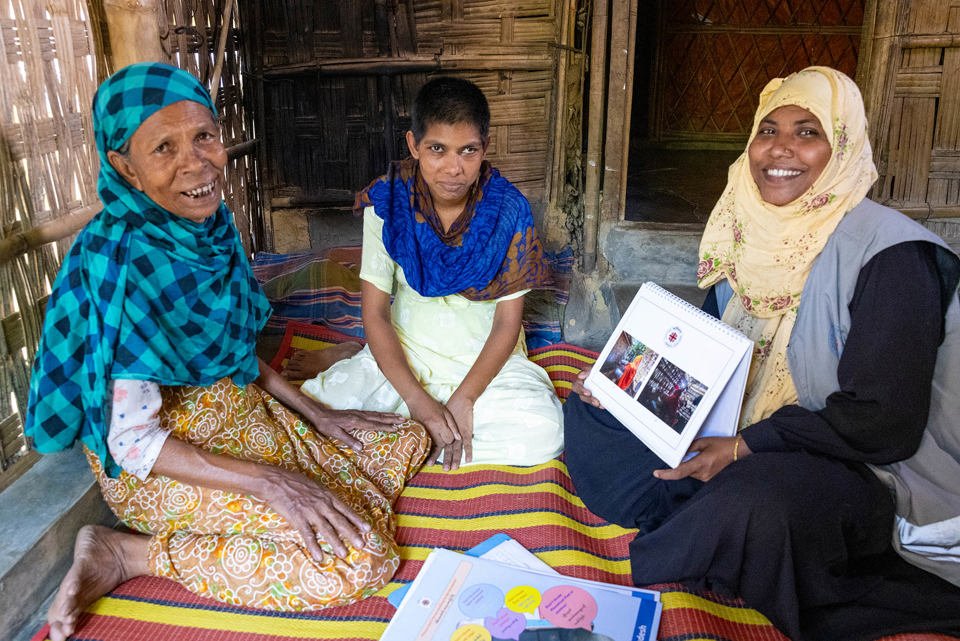
Sakhina with her daughter Noor and Rehena from Caritas Bangladesh. Photo: Caritas Bangladesh
The forgotten emergency
Rohingya Muslims are a minority in Myanmar and have been subject to persecution, attacks and violence over the course of many years. In 2017 a severe crackdown by the military resulted in hundreds of thousands of Rohingya fleeing their homes amid international condemnation and allegations of genocide and ethnic cleansing.
Sakhina and her family were among those who fled. She recounts escaping her home under a hail of bullets. The family had to crawl underneath houses to escape and witnessed the dead bodies of their neighbours.
They then underwent an arduous journey through the forest, with no food and only dirty river water to drink for ten days. They finally reached Bangladesh and were brought to the refugee camp in Cox’s Bazar, where they have remained ever since.
There are now over one million people in the camp, trapped in limbo, unable to return to Myanmar, and unable to leave the camps as the government of Bangladesh is unwilling to grant them official status.
Life in the camp
The camp is not a place of safety. It is overcrowded and dangerous. Conditions are poor and violence is increasing as international attention is drawn elsewhere and support declines. When we visited Sakhina in the camp, we were advised to always keep our Caritas Australia shirts and vests on to clearly identify ourselves as NGO workers, to travel light and keep equipment hidden, and to leave the camp by 3pm as it becomes much more dangerous in the evenings. Violent crime is a regular feature of life in the camp, with an alarming rate of gun violence.
When Sakhina first arrived, there were barely any facilities in place. There was open defecation and a lack of access to clean water, leading to the rapid spread of disease. Sakhina’s daughter lives with a physical disability that makes it difficult for her to get around, and the nearest latrines to Sakhina’s shelter were distant, requiring a long and difficult walk.
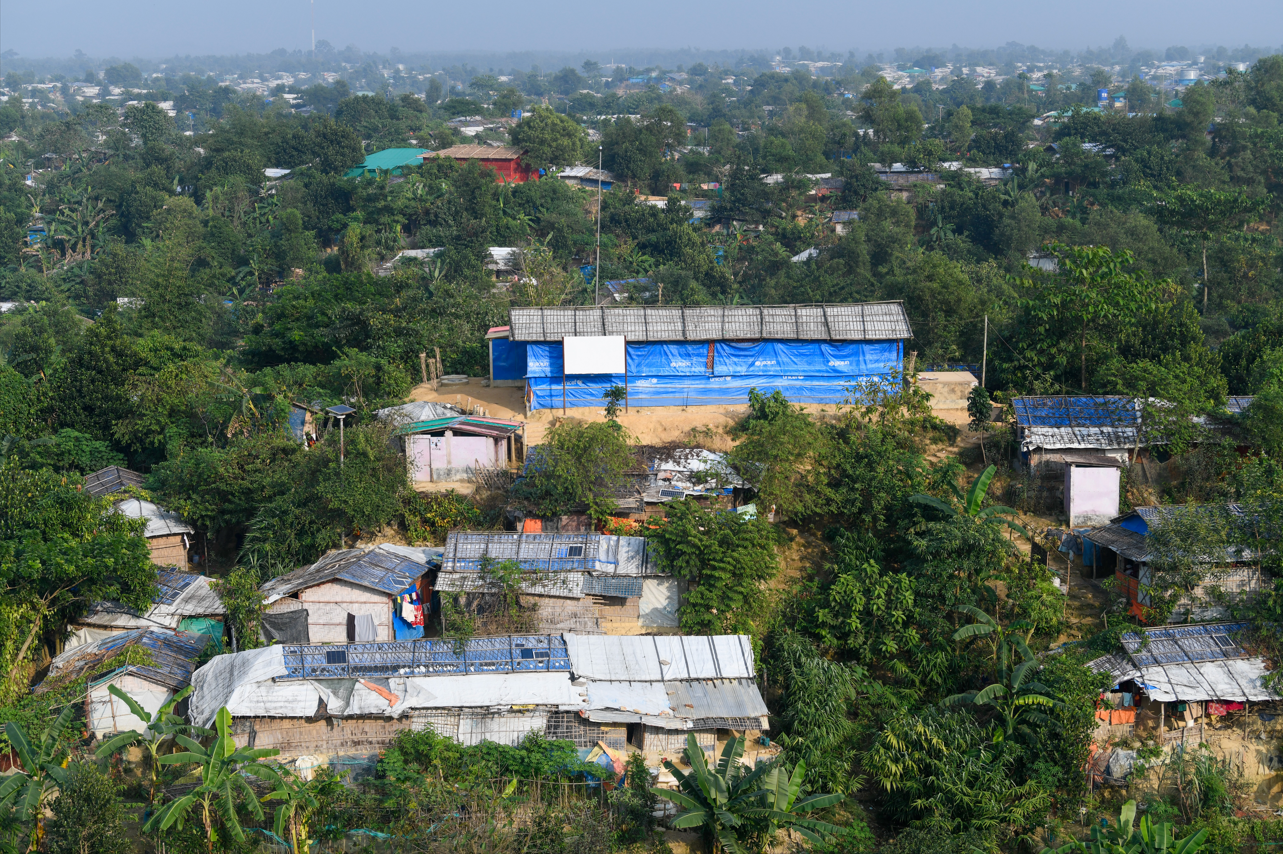
Aerial view of the refugee camp in Cox's Bazar. Photo Credit: Caritas Bangladesh.
Things changed for Sakhina when Caritas Bangladesh arrived and started to implement a WASH (Water, Sanitation and Hygiene) program. WASH programs are critical in helping to keep people healthy and reduce the spread of disease.
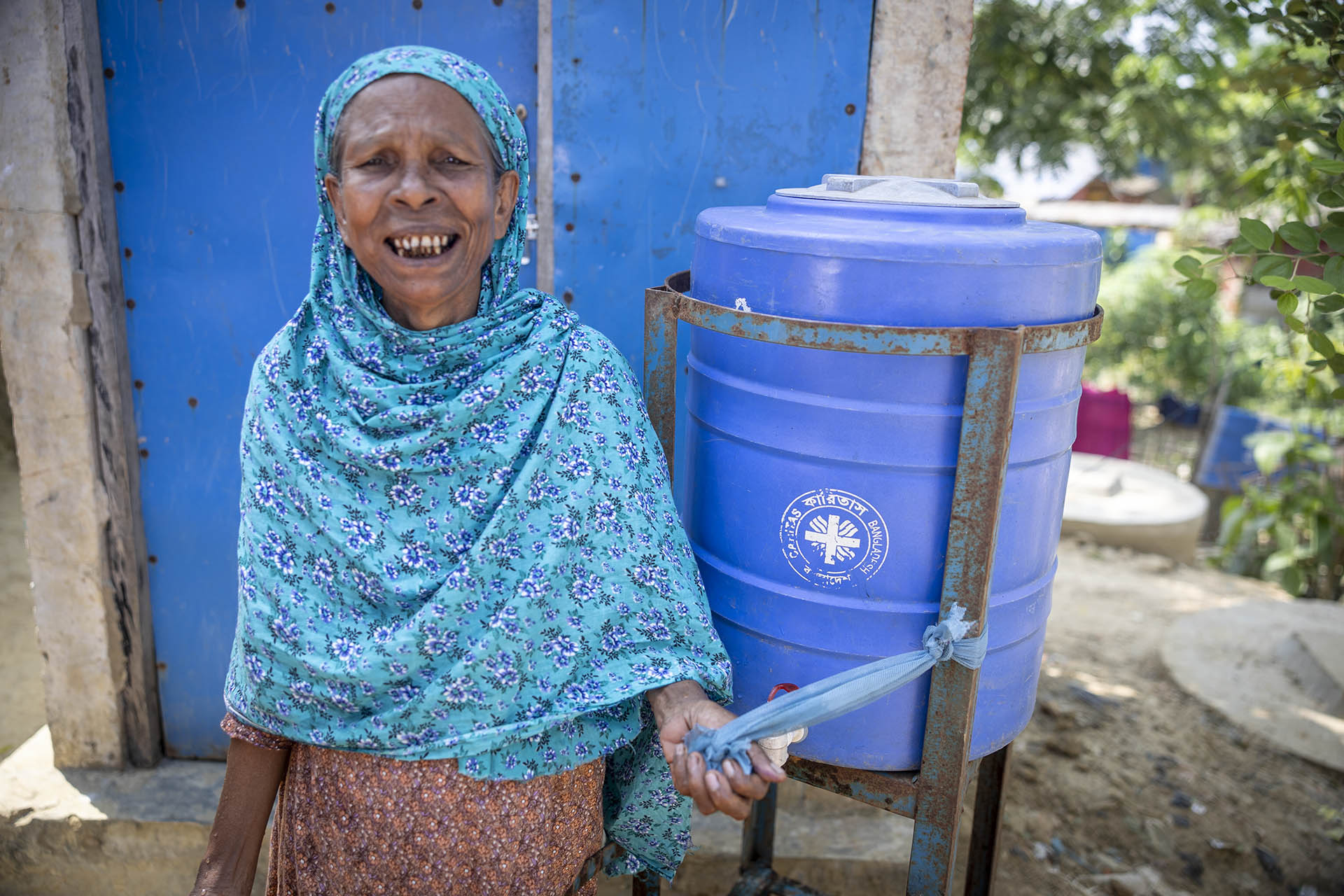
The support of people like you helped Sakhina access clean water so that she and her family can stay healthy. Photo: Caritas Australia
The power of clean water
Thanks to these programs, Sakhina now has reliable access to safe, clean drinking water. There is now an accessible latrine only a few metres from her shelter, and her daughter can use it without needing assistance. A handwash station and hygiene support has also been made available.
These changes might not seem like much, but they mean everything to Sakhina. Wherever we went in the camp, we were consistently told that the most valuable thing to the residents is access to clean water.
The bigger picture
Cox’s Bazar is just one location – there are many places like it all over the world, and millions of people trapped in similar circumstances to Sakhina. Given the state of the world at the moment, we know that even more people are at risk of facing these conditions. It could happen at any time, without warning.
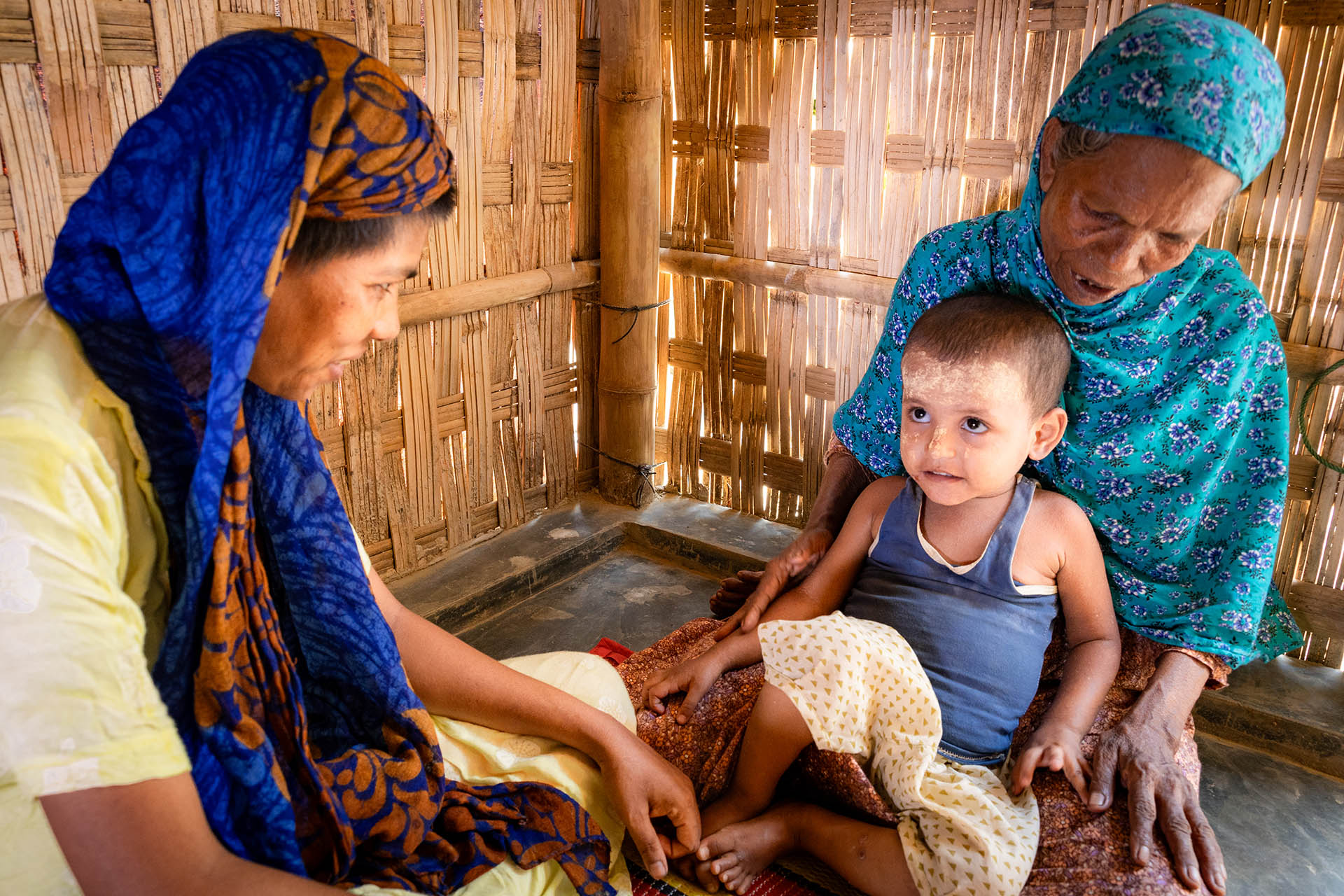
Sakhina with her daughter and grandson inside their family home in Cox's Bazar refugee camp. Photo: Caritas Australia
How you can help
This is why we have our Emergency Response Appeal. This appeal allows us to respond quickly when emergencies and crises happen, to implement vital programs like WASH as rapidly as possible. If you are able, please consider making a donation below, to bring help and hope to people like Sakhina.





